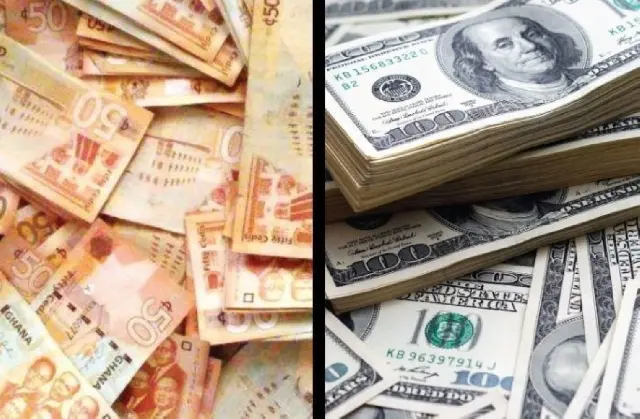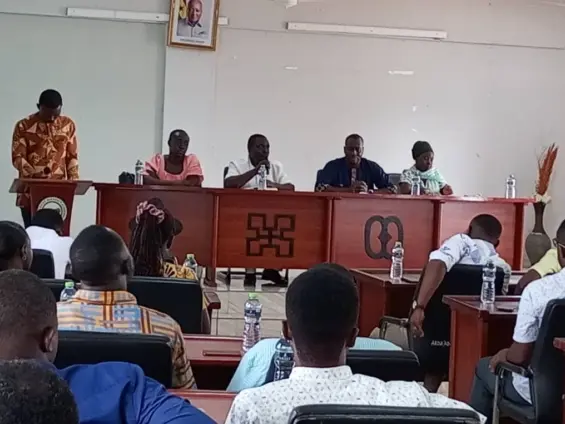The Ghanaian Cedi, after a period of volatility, has demonstrated a notable resilience, appreciating from GH₵15.50 to GH₵12.40 against the dollar. This positive trajectory has prompted questions about the underlying factors driving this currency stabilization. According to the latest ABSA Cedi Report (May 2025), a healthy current account surplus, propelled by robust gold and cocoa exports, plays a pivotal role in not only stabilizing the Ghana Cedi but also in insulating it from external economic shocks.
Ghana’s economic narrative is increasingly intertwined with the fortunes of its key exports. The ABSA Cedi Report sheds light on how these commodities are acting as anchors in a turbulent global financial landscape. This report suggests that the nation’s ability to leverage its natural resources is crucial for maintaining economic equilibrium. This article delves into the specifics of how Ghana’s gold and cocoa exports are bolstering the Cedi, drawing insights from the ABSA Cedi Report, and examines the broader implications for the country’s economic outlook. The strength of the Ghana Cedi is inextricably linked to these vital exports.
Gold, often seen as a safe-haven asset, is proving to be a particularly valuable commodity for Ghana. The ABSA report highlights that several new mines, including Cardinal-Namdini and Ahafo South, are expected to commence production in 2025. This expansion is projected to significantly increase Ghana’s gold output, bolstering the nation’s export earnings. As the report notes, “Several new mines (including the Cardinal-Namdini and Ahafo South mines) are expected to commence production in 2025, according to their owners.”
Moreover, gold’s unique position in the global market further strengthens its appeal. The yellow metal is exempt from the latest wave of US tariffs, making it a reliable export commodity for Ghana, insulating it from potential trade wars. Heightened uncertainty in global trade has also triggered a flight to safe-haven assets such as gold, driving its price to all-time highs of USD3,300/bl in recent weeks, further benefiting Ghana’s economy, as the ABSA Cedi Report underscores. This surge in gold prices translates directly into increased revenue for Ghana, contributing to the healthy current account surplus that is stabilizing the Ghana Cedi.
While gold shines as a reliable export, cocoa also plays a vital role in Ghana’s economic stability. The ABSA report highlights the potential risks to cocoa production in West Africa due to adverse weather conditions, particularly in Ivory Coast. “Amid expectations of a smaller harvest in the West African region. In particular, output from the Ivory Coast could suffer amid volatile weather conditions,” the report states.
However, Ghana presents a different picture. Rainfall levels in Ghana have been more consistent, leading to a rebound in cocoa output after a subdued crop last year. This resurgence in cocoa production is projected to further improve Ghana’s current account surplus. “Given these developments, we now expect the current account surplus to improve to 5.1% of GDP in 2025 from last year’s 4.3%,” according to the ABSA Cedi Report.
The ABSA Cedi Report offers clear recommendations for maintaining and strengthening the Cedi’s stability. The report advises the government and the Bank of Ghana to build reserves supported by a healthy current account surplus to withstand external shocks. “The latest ABSA Cedi Report released in May 2025 has advised the government and the Bank of Ghana to build reserves that will be supported by a healthy current account surplus.” Building these reserves will create a buffer, allowing the Ghana Cedi to better withstand fluctuations in global commodity prices or unforeseen domestic economic challenges.
In conclusion, Ghana’s Cedi is currently benefiting from the confluence of strong gold and cocoa exports, a trend clearly highlighted in the ABSA Cedi Report. The commencement of operations at new gold mines, coupled with consistent rainfall supporting cocoa production, is painting a promising economic outlook for the nation. By adhering to the ABSA report’s recommendations, building reserves, and maintaining a healthy current account surplus, Ghana can further solidify the stability of the Ghana Cedi and safeguard its economy against potential external vulnerabilities. The combination of gold and cocoa exports is proving to be a powerful force in Ghana’s economic narrative.
Image Source: MYJOYONLINE





















